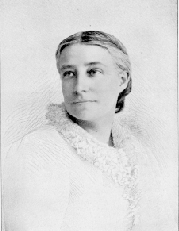A Quote by Elizabeth Stuart Phelps Ward
It is in the comprehension of the physically disabled, or disordered ... that we are behind our age.... sympathy as a fine art is backward in the growth of progress.
Related Quotes
Physically, we get older and then we die. Yet spiritually, whether we go backward or forward is a matter not of the body but of consciousness. When we think about age differently, then our experience of it changes. We can be physically older but emotionally and psychologically younger. Some of us were in a state of decay in our 20s and are in a state of re-birth in our 60s or 70s. King Solomon, who supposedly was the wisest of all men, described his youth as his winter and his advanced years as his summer. We can be older than we used to be yet feel much younger than we are.
This is ideal, you’ll see. We do everything backward. It’s just how we are. We began with an elopement. After that, we made love. Next, we’ll progress to courting. When we’re old and silver-haired, perhaps we’ll finally get around to flirtation. We’ll make fond eyes at each other over our mugs of gruel. We’ll be the envy of couples half our age.
Our progress as a nation can be no swifter than our progress in education. Our requirements for world leadership, our hopes for economic growth, and the demands of citizenship itself in an era such as this all require the maximum development of every young American's capacity. The human mind is our fundamental resource.
We recognize that our progress as a species does not have to be defined in terms of wealth or material and physical growth any more than our progress as individuals has to be defined in terms of physical growth. Physical growth of the body reaches a limit, but the character and the soul of the individual continues to grow, or at least has a chance to continue, often to our last breath. It is simple minded to define our well being in material terms, when that well-being has an aesthetic dimension, and intellectual dimension, a moral dimension.
It is not a question of patronizing philanthropy towards disabled people. They do not need the patronage of the non-disabled. It is not for them to adapt to the dominant and dominating world of the so-called non-disabled. It is for us to adapt our understanding of a common humanity; to learn of the richness of how human life is diverse; to recognize the presence of disability in our human midst as an enrichment of our diversity.
Young people of high school age can actually feel themselves changing. Progress is almost tangible. It's exciting. It stimulates more progress. Nevertheless, growth is not constant and smooth. Erik Erikson quotes an aphorism to describe the formless forming of it. "I ain't what I ought to be. I ain't what I'm going to be, but I'm not what I was.
































